Russian FM says new ‘iron curtain’ descending between Russia, West following Ukraine war
Russian Foreign Minister Sergei Lavrov has warned that a new “iron curtain” is descending between Russia and the West, just a day after NATO branded Russia as the US-led bloc’s “most significant and direct threat” to the security of its members.
Since the onset of Russia’s “special military operation” in Ukraine on February 24, the US and its European allies have not only unleashed a raging flood of advanced weapons into the ex-Soviet country to help its military to fend off Russian forces but also imposed waves of unprecedented sanctions against Moscow, attempting to ultimately make Russia a pariah nation.
In a provocative move on Wednesday, NATO formally invited Sweden and Finland to join the military alliance, a move that triggered strong reaction from Russia, which called it “a purely destabilizing factor.”
Furthermore, NATO, in its new 10-year strategic policy published during the bloc’s summit in Madrid on Wednesday, officially declared Russia the “most significant and direct threat” to the security of its members, marking a radical strategic shift spurred by the Russian military offensive against Ukraine. The last such document, published in 2010, NATO had described Russia as a “strategic partner.”
On Thursday, Lavrov said that a new “iron curtain” was descending between Russia and the West following the war in Ukraine.
“As far as an iron curtain is concerned, essentially it is already descending. They should just be careful not to pinch anything,” Lavrov said at a press conference, adding, “The process has begun.”
Iron curtain refers to the political, military, and ideological barrier that was built by the Soviet Union following the conclusion of the Second World War in an attempt to fully detach itself and its dependent allies in eastern and central Europe from open contact with the West and other non-communist regions.
Elsewhere in his remarks, Lavrov said Russia has not had any relations with the European Union since 2014, when the then Ukrainian territory of Crimea voted in a referendum to fall under Russian sovereignty.
The US and the EU backed Kiev and refused to recognize the referendum results, later imposing sanctions on Moscow.
Lavrov stressed that the Kremlin would not trust Washington and Brussels “from now on”, adding, “The EU is not at all interested in understanding our interests.”
The European bloc “is interested in what has been decided in Brussels. And what has been decided in Washington has been decided in Brussels,” Lavrov further said.
Biden sends $800 million in military aid to Ukraine
President Joe Biden said Wednesday the US plans to send an additional $800 million in military aid to Ukraine, including advanced air defense systems and other “offensive” weapons.
The new assistance package will also include more counter-battery radars, artillery and ammunition, including ammunition for High Mobility Artillery Rocket Systems (HIMARS).
Russia has time and again stressed that the US-led West’s flood of weapons will not force Moscow to end the operation before achieving its objectives. The Kremlin has also warned that the unprecedented sanctions against Russia, plus the flow of arms into Ukraine, would only prolong the ongoing war.
“We are going to stick with Ukraine, and all of the alliance are going to stick with Ukraine, as long as it takes to make sure they are not defeated by Russia,” Biden stressed.
The American president also claimed that “Ukraine has already dealt a severe blow to Russia”, but added that still he did not “know how it's going to end.”
“But it will not end with a Russian defeat of Ukraine,” Biden predicted.
Germany boosting its military capabilities: Scholz
On Thursday, German Chancellor Olaf Scholz said his country was ramping up its military capabilities as fast as possible, adding that Berlin would commence the NATO ratification process for Sweden and Finland later this week.
“For Germany, this means that we will continue to expand our contribution on land, at sea and in the air," he said at a press conference told at the NATO summit in Madrid.
According to the chancellor, Germany will permanently maintain a regional marine commando in the Baltic Sea, a tank division with 15,000 soldiers and 20 naval units.
PM: UK to ramp up military spending to 2.5% of GDP
Also on Thursday, British Prime Minister Boris Johnson announced that his country’s military spending would reach 2.5 percent of its gross domestic product (GDP) by the end of this decade.
“Countries ... are recognizing that they need to spend more. In our case, that means meeting and being prepared to exceed the target we set for ourselves a decade ago,” he said at a press conference at the NATO summit in Madrid.
“The logical conclusion of the investments on which we propose to embark ... is that we will reach 2.5 percent of GDP on defense (spending) by the end of the decade,” Johnson added.
Two days earlier, London said that the UK’s military spending was projected to reach 2.3 percent of GDP this year due to increased military support for Ukraine.
Putin rejects British PM’s masculinity claims
Russian President Vladimir Putin on Thursday rejected Johnson’s claim that if he were a woman he would not have begun a military operation in the ex-Soviet country.
The British premier on Wednesday had said that Putin’s operation in Ukraine was a “perfect example of toxic masculinity” and mocked the Russian leader’s macho posturing.
In response, Putin pointed to former British leader Margaret Thatcher’s move to deploy troops to the Falklands 40 years ago as a rebuttal of Johnson’s theory.
“I just want to recall the events of recent history, when Margaret Thatcher decided to launch military operations against Argentina for the Falkland Islands. So, a woman took the decision to launch military action,” the Russian president said at a press conference.
“Therefore it’s not an entirely accurate reference from the British prime minister to what is happening today,” Putin added.
He was criticizing to Britain's move, in April 1982, to respond militarily to Argentina's attempt to seize the sparsely populated British-run islands in the South Atlantic.
VIDEO | Press TV's news headlines
VIDEO | Israeli forces launch wide-scale military operation in Qabatiya, south of Jenin
Trump-backed push brings Jolani regime, Israel closer to deal: Israeli media
VIDEO | Iraqi govt. rejects any kind of normalization with Israeli regime
VIDEO | Venezuela's medicine prices soar to unaffordable level amid US blockades
Somalia officially demands Israel reverse recognition of Somaliland
Hezbollah condemns deadly terror attack on worshippers in Syria’s Homs
VIDEO | US military build-up in Caribbean


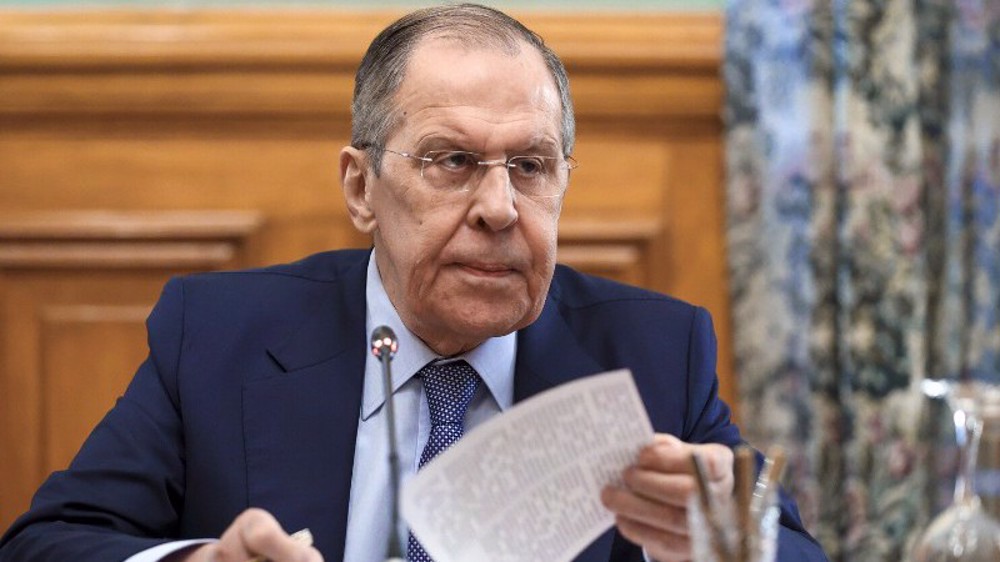
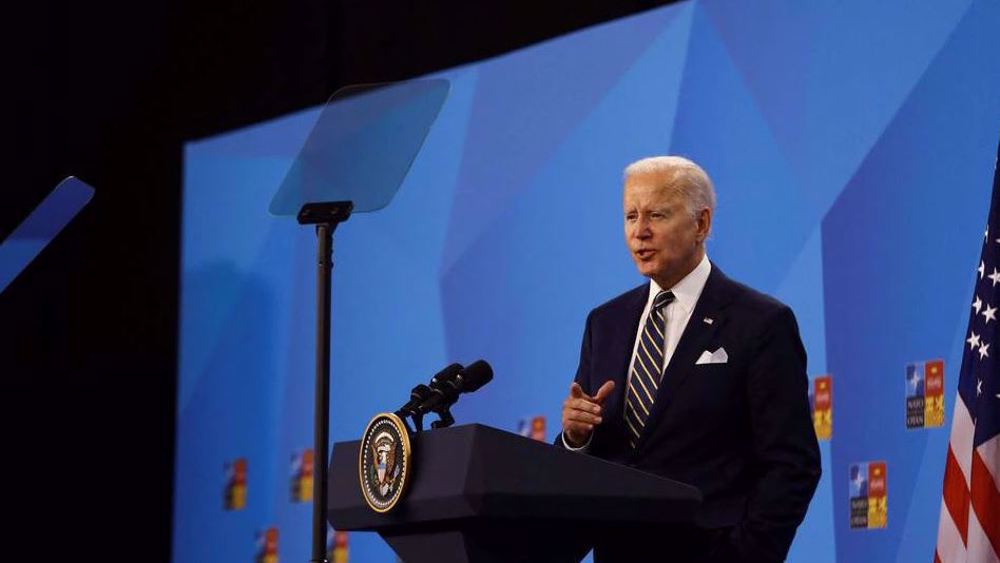
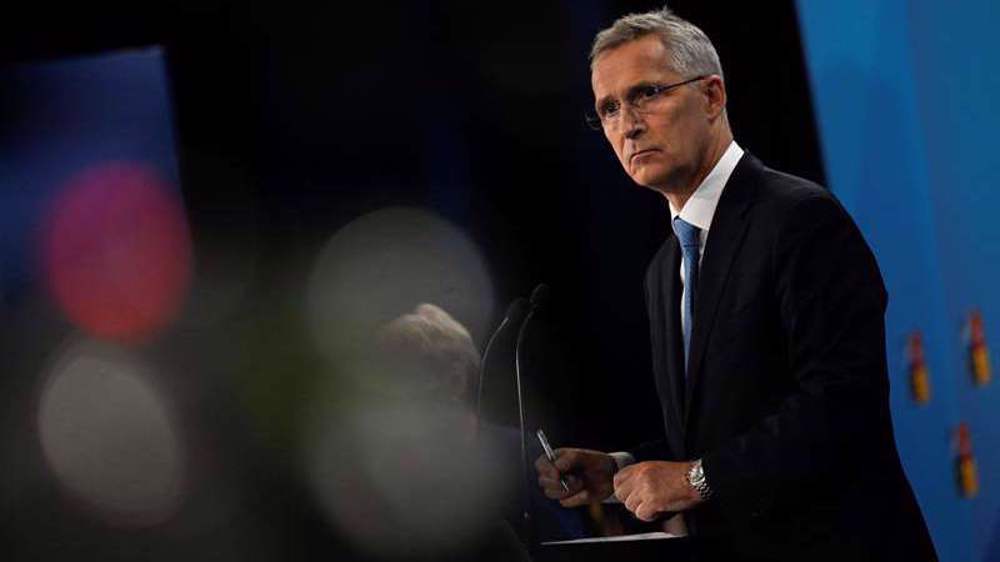
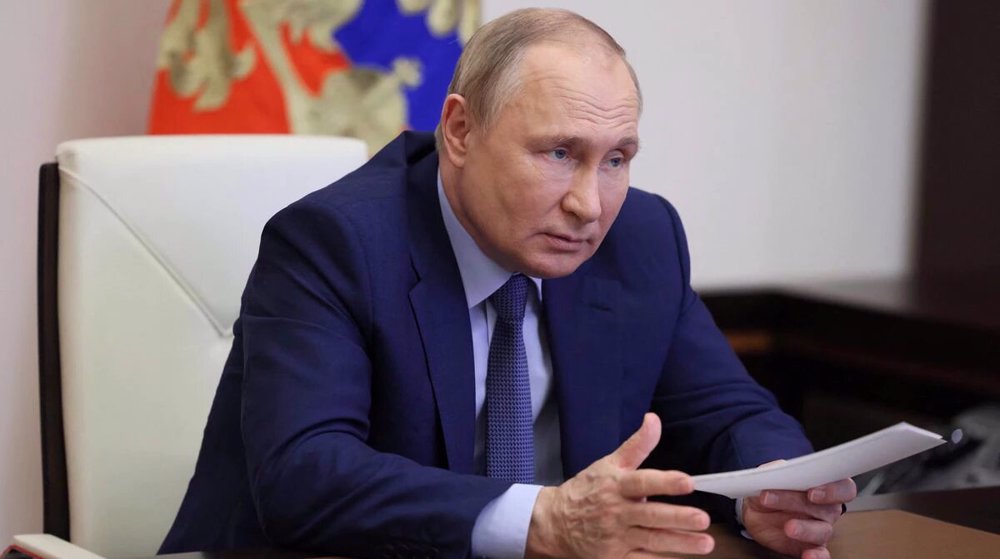
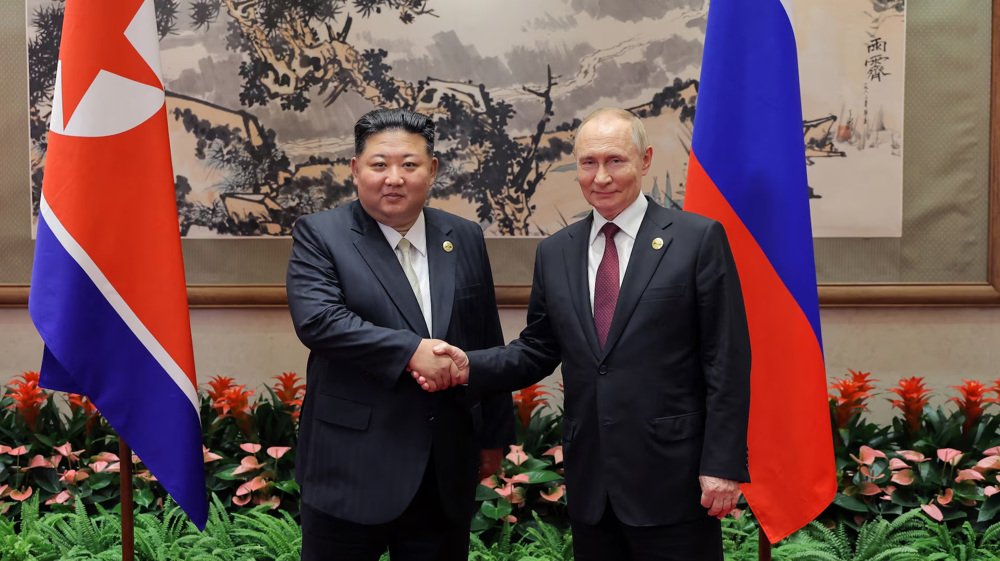
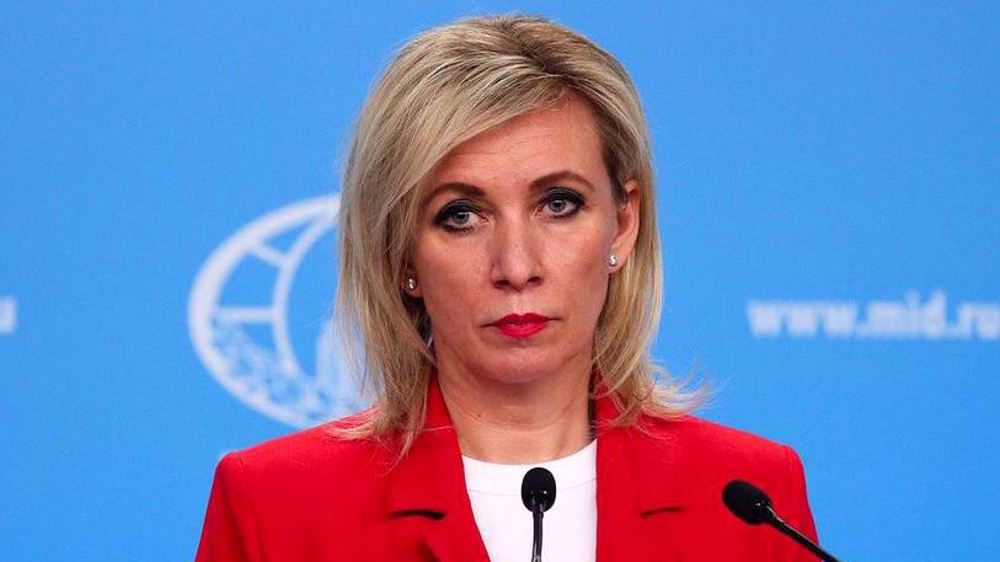
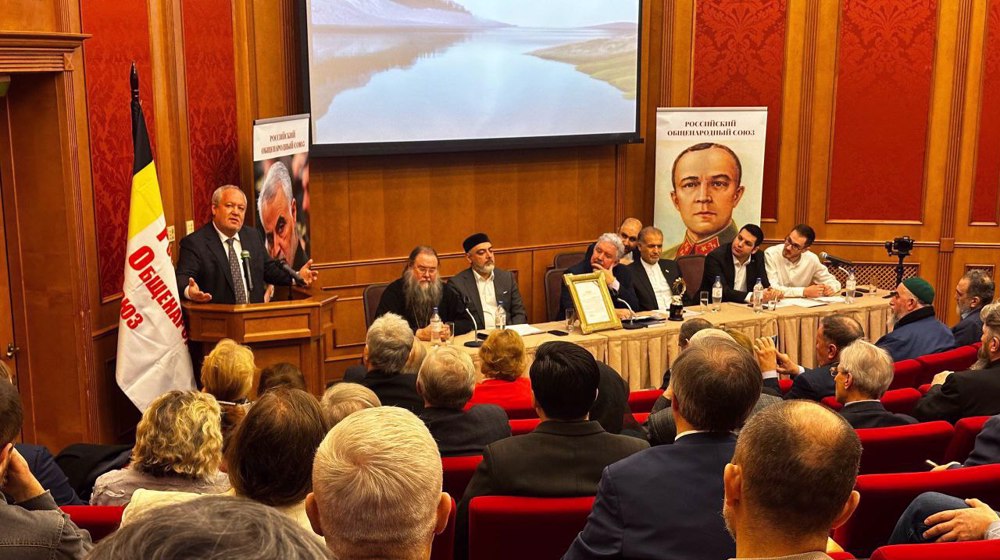




 This makes it easy to access the Press TV website
This makes it easy to access the Press TV website